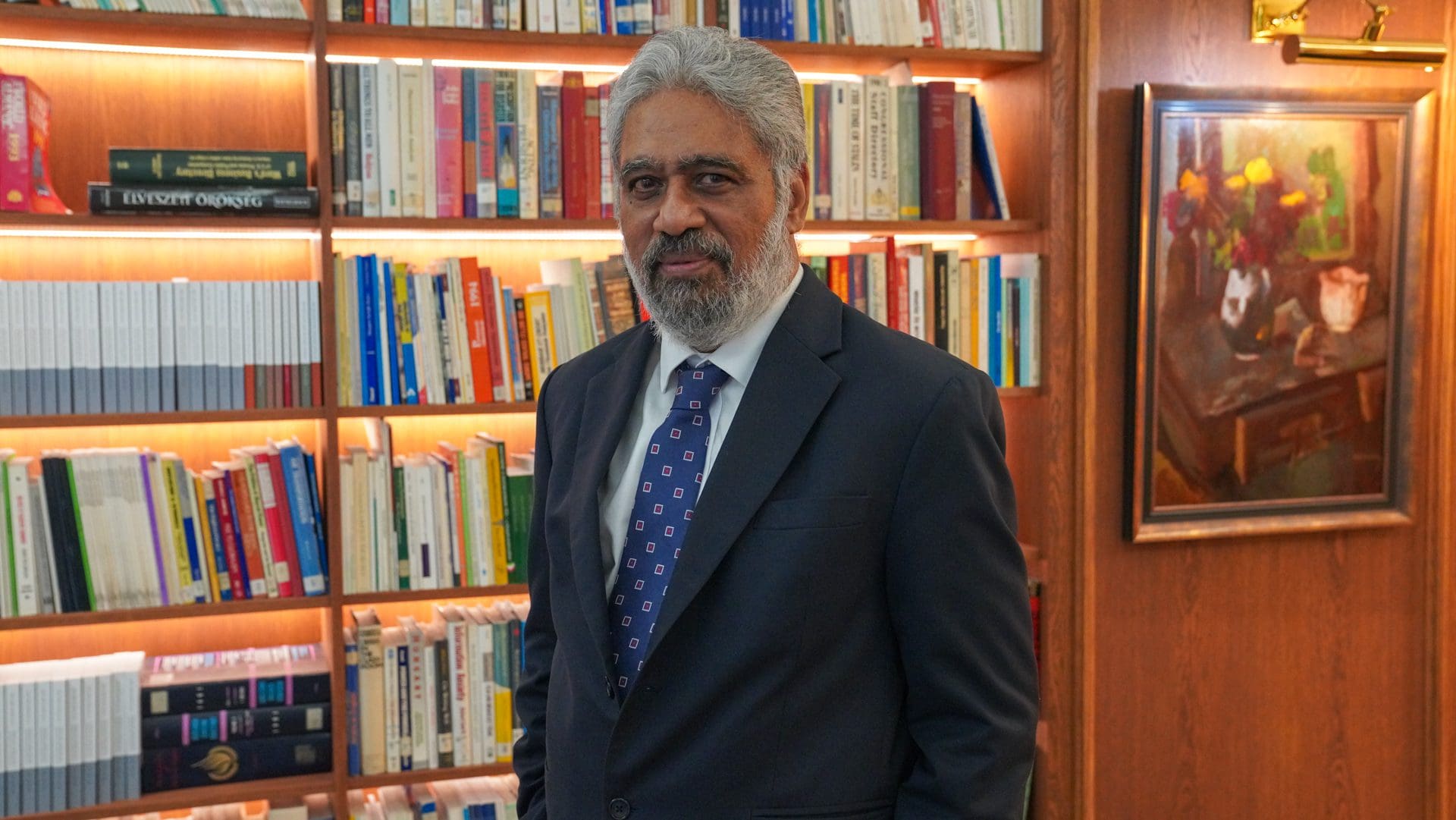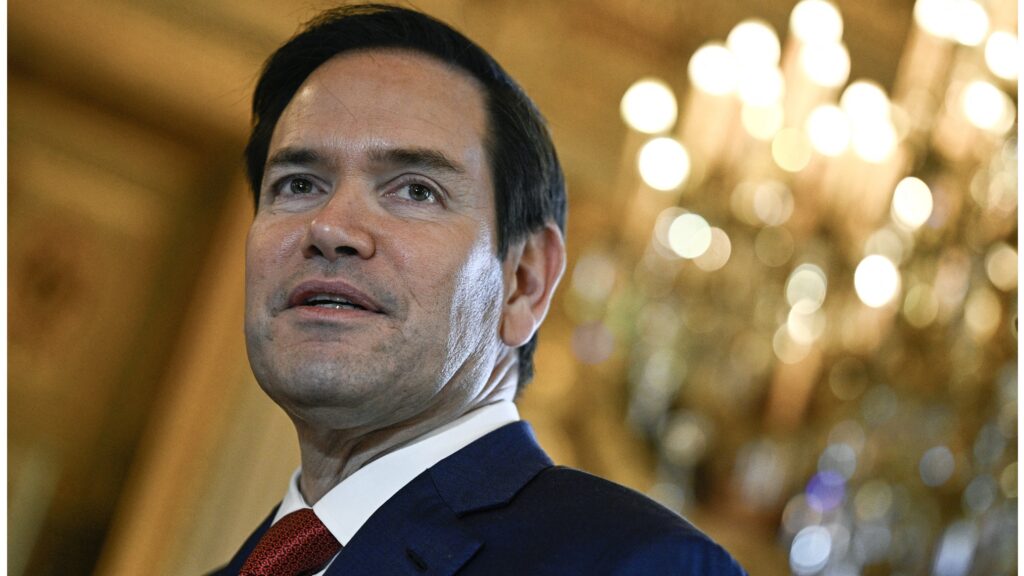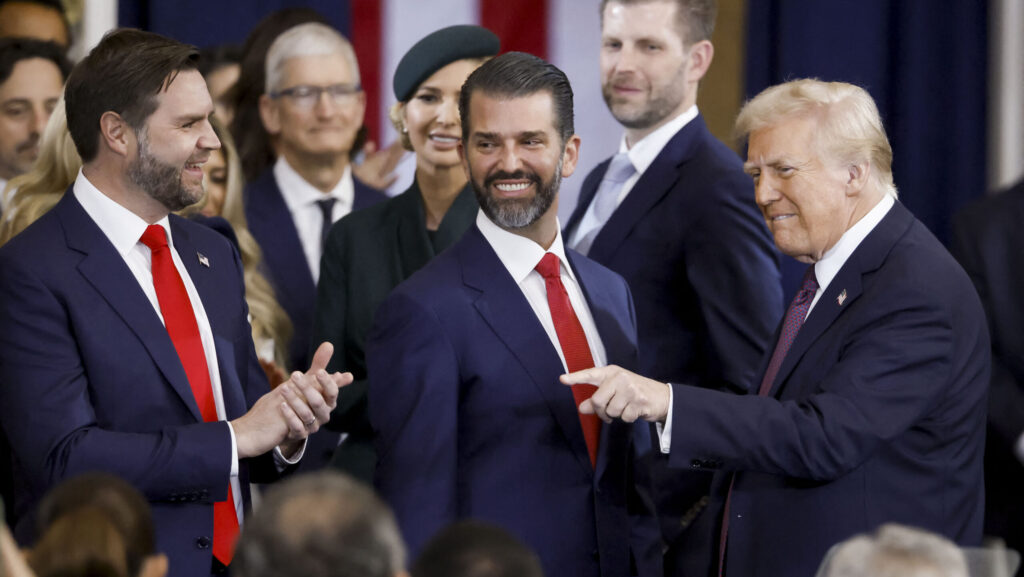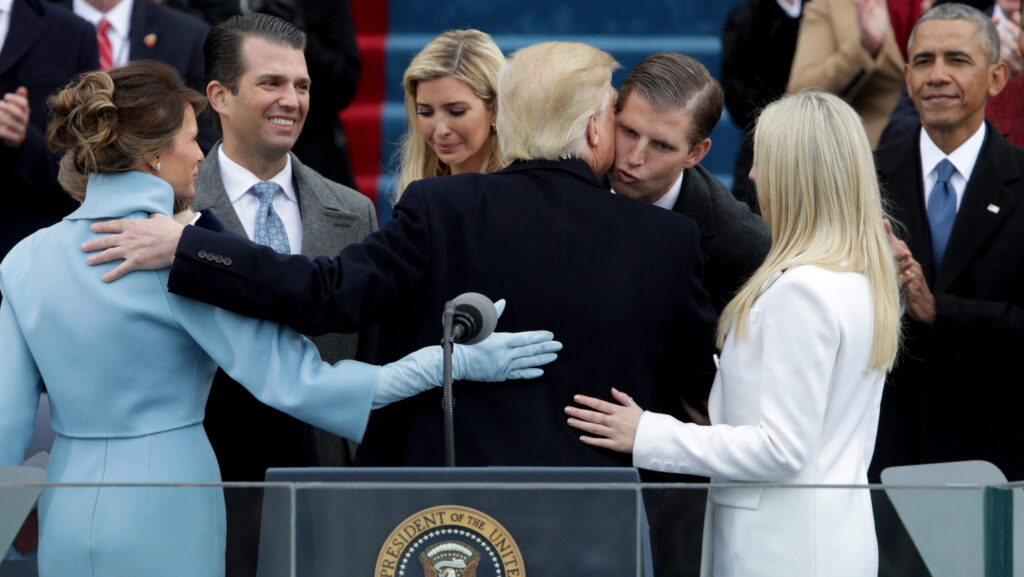Professor C Raja Mohan is Visiting Research Professor at the Institute of South Asian Studies (ISAS) at the University of Singapore, Senior Fellow at the Asia Society Policy Institute, and a leading commentator on India’s foreign policy. He formerly served as Director of the Institute of South Asian Studies at the University of Singapore. He sat down with Hungarian Conservative for an interview while in Budapest as a distinguished speaker at The Third Danube Geopolitical Summit in September.
***
How has your first time in Hungary been so far?
It’s been a great learning opportunity for me, being my first time in Central Europe. Indians often overlook the complexities of this region—the concerns, interests, and geopolitics. This visit has given me a much better understanding of Middle Europe.
India has undergone remarkable changes in the last few decades. Just last month, India landed on the lunar south pole, showcasing a pace of development that’s hard to keep up with. How do you envisage India’s future?
The economic reforms of the last 30 years in India are finally bearing fruit. India is experiencing robust growth, currently ranking as the fifth largest economy. In the next four to five years, it is poised to become the third largest. As we approach the five-trillion-dollar mark, India’s influence in international affairs will undoubtedly grow. This economic rise will significantly impact the global economic order and grant India a more prominent role. And as an economy, it is also going to have a greater say in the way the global economic order is managed.
What’s the actual relationship of India to the West?
Over the last 30 years, India’s economic relationship with the West, particularly the US, Europe, and Japan, has expanded significantly, while the Russian relationship has declined. The China economic relationship has grown, but we have new problems there. So, in some senses, what we’re going to see is
the convergence of the Indian economy with the West.
Indian talent is becoming increasingly vital for building new technology industries in the West, with Indians prominently present in major technology companies.
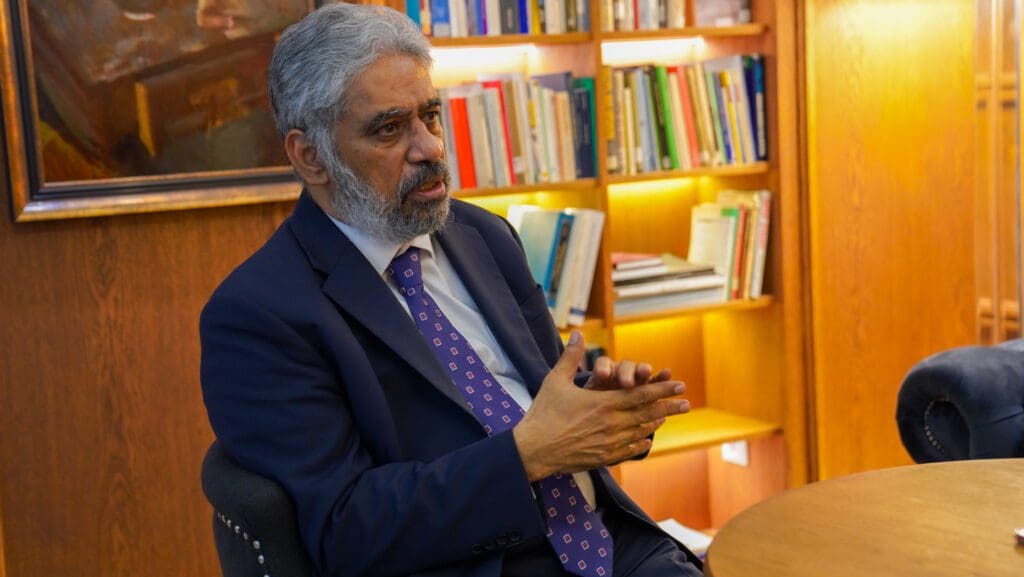
So Indian talent is going to be a critical factor for building the new technology industries in the US and in Europe as well in the coming years.
This trend is expected to continue, fostering a deeper economic, political, and cultural partnership with the West in the coming decades.
In a recent publication you discussed the crisis in the old multilateralism order and how it presents an opportunity for India to shape a new regional and global framework. Could you elaborate on the need for this new framework and its potential implications?
I think at the end of 1991, these two ideas emerged. One, that there was no more conflict between the major powers. So therefore, they can work together in the UN Security Council to build a real global security architecture because all of them are now on the same side. The second assumption was by forming the WTO: the idea that China will be part of it and that China can be a natural partner for the economic growth of the international system and that China will play by the rules. Now both these assumptions: security multilateralism and economic multilateralism have collapsed in a fundamental way.
What happened as a consequence?
The collapse of assumptions related to security and economic multilateralism in 1991 has necessitated the re-evaluation of the global order. Recent events, such as Russian aggression against Ukraine and Chinese aggression against its neighbours has shattered the fate that the UN system or a cooperative security order can be built, both at the global and the regional level. Because globally, we thought the UN Security Council will do it. In Asia we thought the ASEAN-led institutions can provide the security. But the UN security system—because China and Russia have the veto—doesn’t work. In Asia, the ASEAN is very weak in comparison to China and it’s unable to stand up to China. Consequently, stopping the Chinese aggression in Asia and Russian expansionism in Europe both require a different framework than the old ideas about a collaborative cooperative security order.
It seems that you are disappointed with how China has acted in the last few decades.
On the economic side, the entry of China into the WTO in 2001 raised a lot of hopes that China—a large country as a market economy—would transform the global economic system.
But what we’ve seen is that China has actually weaponized interdependence.
It has grown at the expense of the others. It has trade surplus with everybody. On the other side, China has also sought to lessen its dependence on the world while simultaneously increasing the world’s dependence on China. So this is not acceptable to a large number of countries.
And we saw that India walked away from the Asian free trade agreement…
The US does not want the WTO to remain in the same framework because China has gained the system. So, since China’s entry, the notion that there would be no conflicts on the economic side has also been compromised. Today, we observe an effort to rewrite the rules of globalization and economic engagement, focusing on reducing dependence on China.
How can this be achieved? What could be the solution?
We’re talking about creating new supply chains which are not dependent on China. We’re talking about trusted geographies where like-minded countries can shorten the supply chains. We’re talking about friendshoring of supply chains to countries which you have good relations with. So, my sense is that
we are in a new phase where the Chinese unilateral economic gains has created conditions in the US for a backlash.
In India and in Japan the attempt is to rework the global economic order in a manner that benefits everyone and not just one country.
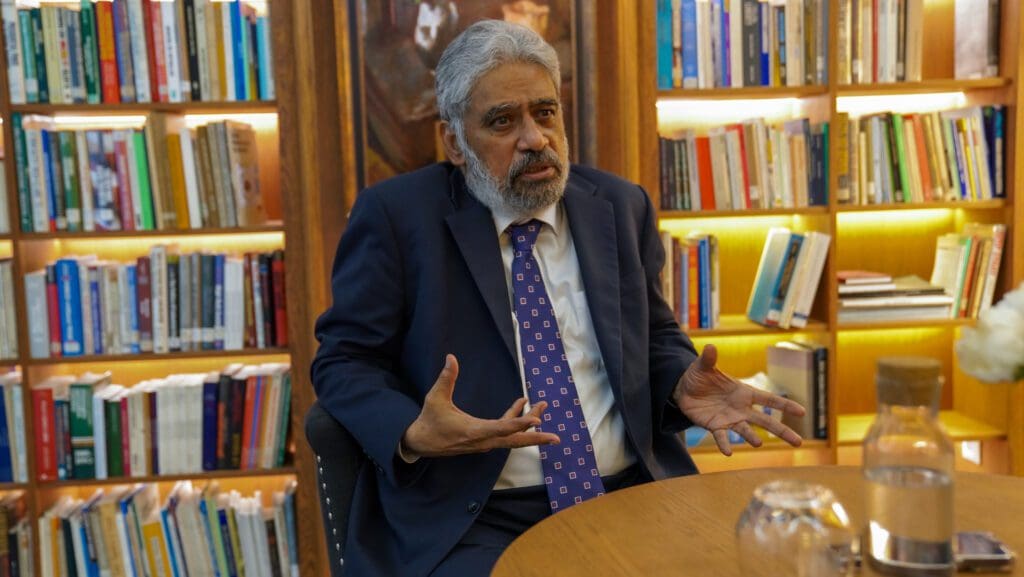
And from an Indian point of view, how do you perceive the role of the Russo-Ukrainian conflict?
Firstly, it’s a very horrible situation. There’s a lot of misunderstanding about India’s position: India’s silence or India’s unwillingness to criticize Russia is not an endorsement of Russia. The problem has been that India values sovereignty and territorial integrity as much as any country does. So, in fact, unlike in Europe, the commitment to sovereignty, territorial integrity is far deeper in the developing countries and India has always been a champion of that.
Secondly—and what the problem for us has been—, the immediate global impacts on food prices and energy prices have had a dramatic effect on the economies of India and the developing world. This comes as we were just emerging from the pandemic’s aftermath, then this crisis actually has made the economic conditions a lot worse. We’ve also discovered how Ukraine and Russia are indeed the bread baskets of the world and that any attempt at conflict is causing havoc with the world of food prices. Russia and Ukraine have also been major exporters of fertilizers that is also creating problems.
The third aspect is India’s belief that Russia could serve as part of a balance of power support system. Ideally, Russia, as an independent power in Asia, would mitigate the risk of a single country, such as China, dominating the region. However, President Putin’s recent alignment with President Xi has made the situation more complicated, as it has altered this anticipated dynamic.
What do you think are the prospects of the war?
Our assessment in India is that this war will likely be a prolonged and costly one. Therefore, it is imperative to actively seek diplomatic solutions. In this regard, there is
a notable similarity with the Hungarian position, emphasizing the need for prioritizing peace
through diplomacy and that the war will be damaging to everyone in the region and the world at large.
What could Hungary’s potential strategies be in light of the changing economic landscape?
The assumptions we made—as I said—on the economic picture no longer exist. The US itself is recalibrating its economic policies. China is doing the same, India is doing the same. So, my sense is Eastern Europe and Hungary must reach out to all possible economic actors. Especially concerning Asia, I believe there’s a notable distinction that I have with the Hungarian perspective. Hungary, akin to Europe, tends to think of everything in Asia as China. However, Asia is a vast and diverse continent encompassing more than just China. It comprises countries like Japan, South Korea, India, and the ASEAN. In my view, China has reached a peak, and its influence is likely to face challenges. Thus, directing attention toward Asia as a whole, focusing more on Japan, South Korea, India, and the ASEAN—these countries could unveil numerous opportunities.
And do you see any opportunities for Hungary and India to cooperate?
Absolutely. Historically, India has neglected Central Europe. Central India does not figure in Central Europe’s calculus. However, considering the ongoing crisis in Europe and the global order, and recognizing India’s emerging status as a significant economy, I believe we now have an opportunity to re-evaluate the potential collaborations and how we can build on them. My hope is that this collaboration will commence soon.
Even amid the Ukraine crisis, India is endeavouring to engage with Europe collectively.
Free trade negotiations have already been initiated with Europe. We have established a Trade and Technology Council with Europe. Additionally, we are making efforts to engage with Europe through EUROMED initiatives and the new corridor. Hence, I see numerous new possibilities. The foremost step is to acknowledge, from a political standpoint, that we are in an increasingly complex world: under these circumstances, India and Europe, India and Central Europe, and India and Hungary can indeed work together.

